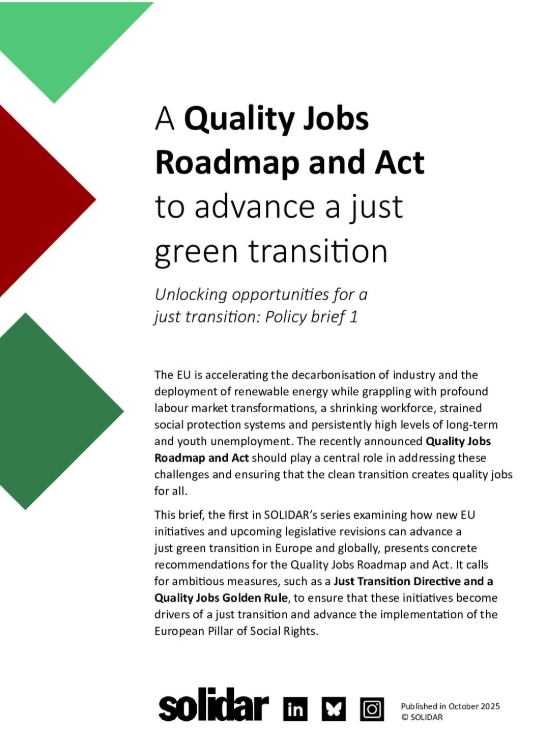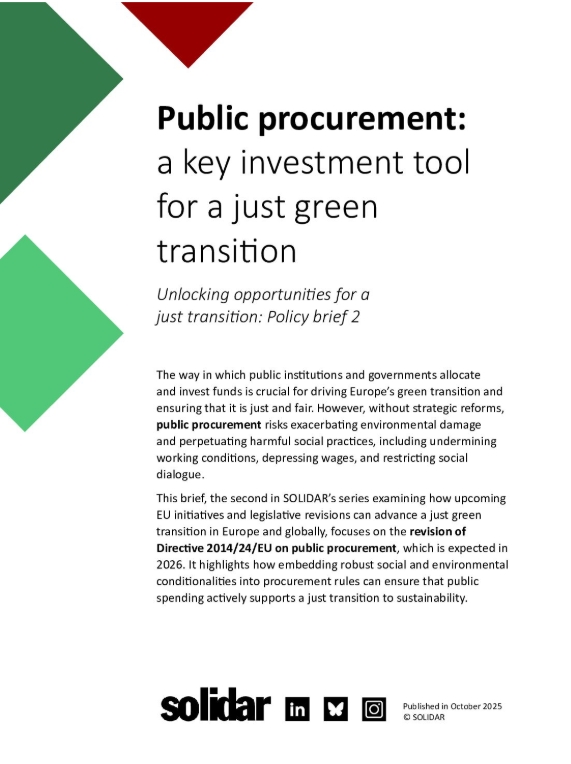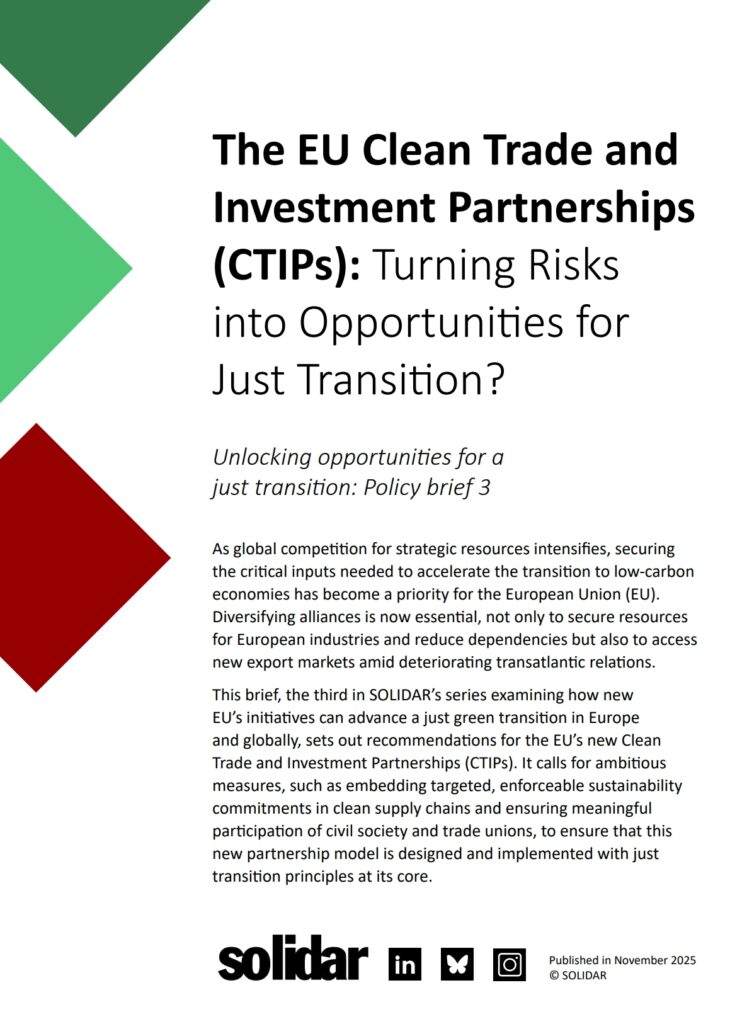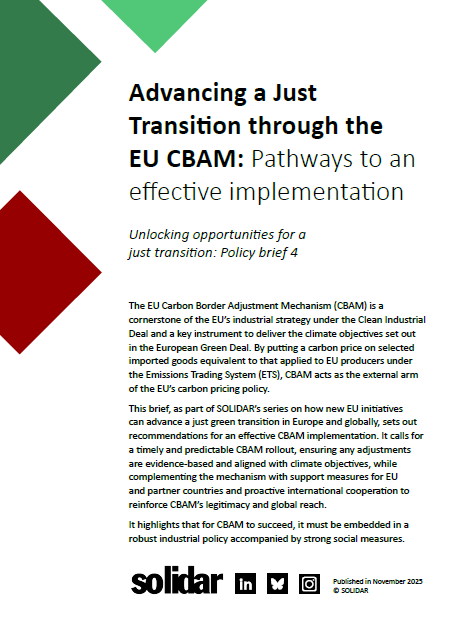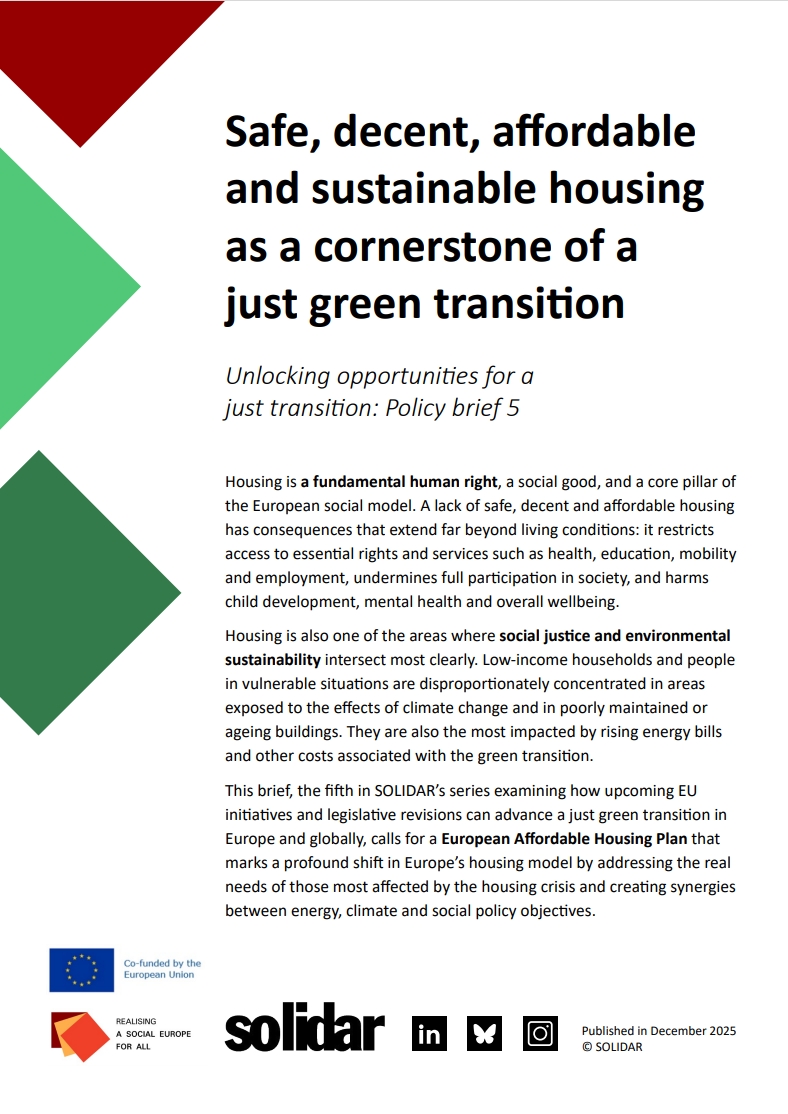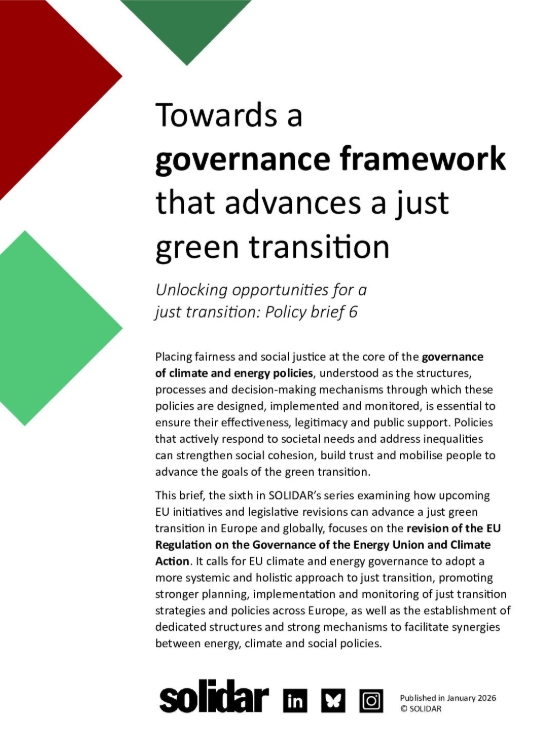Unlocking Opportunities for a Just Transition: Policy Brief series
The EU mandate 2024–2029 embraces the narrative of a just transition, continuing along the path set by the European Green Deal. The Political Guidelines of July 2024, which outline Commission President von der Leyen’s priorities for the mandate, state that ‘We need to ensure a just transition for all’. The Commission Communication of February 2025 on the Clean Industrial Deal, the EU’s flagship strategy to boost competitiveness while advancing decarbonisation, emphasises that
‘Every person, community, and business should benefit from the clean transition. The Clean Industrial Deal therefore commits to a just transition that delivers quality jobs and empowers people, building on their skills, while promoting social cohesion and equity across all regions.’
Other strategic documents, such as the Commission’s July 2025 proposal for the next Multiannual Financial Framework (MFF), also emphasise the importance of ensuring that all workers, communities, territories, and regions reap the full benefits of the transition to sustainability.
Against this backdrop, several legislative and non-legislative EU initiatives announced during the first year of the mandate offer concrete opportunities to strengthen specific aspects of the just transition. Through a series of policy briefs focusing on these EU initiatives, SOLIDAR aims to provide practical, evidence-based recommendations to ensure these opportunities lead to tangible progress towards a just transition in Europe and globally. The briefs are:
- A Quality Jobs Roadmap and Act to advance a just green transition
- Public procurement: a key investment tool for a just green transition
- EU Clean Trade and Investment Partnerships (CTIPs): Turning risks into opportunities for a just green transition?
- Advancing a Just Transition through the EU CBAM: Pathways to an effective implementation
- Safe, decent, affordable and sustainable housing as a cornerstone of a just green transition
- Towards a governance framework that advances a just green transition
In today’s reactionary and unstable political climate, it is crucial to mobilise and resist efforts to dismantle climate and environmental protections through deregulation. Rising social inequalities, the growing cost of living and mounting climate pressure risk fueling polarisation and undermining public support for the transition. The only viable path forward is a just transition that delivers tangible improvements in people’s daily lives, creates quality jobs, strengthens fairness and social cohesion, and accelerates progress towards climate neutrality.
To achieve this, decision-makers must prioritise the objectives of a just transition and seize the opportunities offered by the current EU policy agenda to bridge the gap between ambition and implementation. SOLIDAR’s series of policy briefs provides practical guidance on how to turn these objectives into reality.


